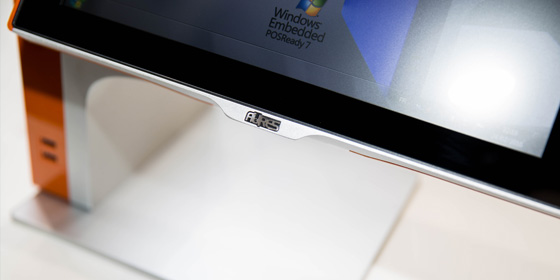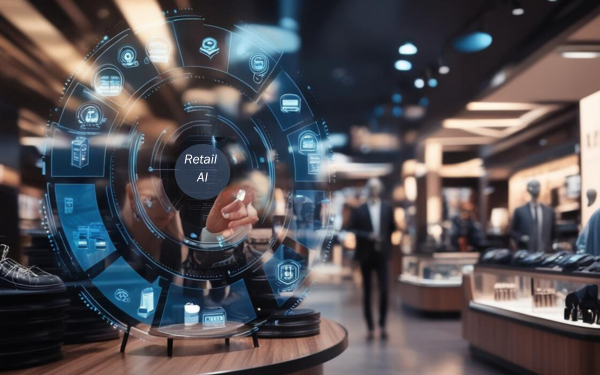From voice-activated kiosks to camera-based scanning systems that increase speed and accuracy at POS, AI is making its presence felt right across retail.
And it’s far from being a case of retailers feeling they need to jump on the bandwagon of the next big thing. According to figures from Statista, retail companies that have adopted AI enjoyed double the sales growth non-adopters saw from 2023 to 2024, and almost three times the profit growth.
Other stats reveal that AI optimisation tools have helped retailers achieve 30% increases in conversion rates, while AI-powered personalisation can accelerate the rate of revenue growth by 10%.
Numbers like these make their own case for introducing AI into your retail business. So how exactly is AI driving such impressive outcomes?
Here are five ways you can reap the rewards of AI as a retailer.
Smarter decision making
Data analytics has had a huge impact on retail planning and strategy. From marketing to inventory and merchandising to pricing strategy, analytics helps retailers make decisions based on a clear understanding of what has worked and is working, or else identify areas for improvement so they can take action.
AI takes data analytics to a whole new level. It can process data at previously unimaginable scales, work with ‘unstructured’ (i.e. non-mathematical/statistical) sources such as language, and ‘learn’ as it goes to refine its insights over time. The result has been the evolution of things like predictive analytics, which dives into the context of past events to such a depth that it can model the probability of future outcomes if certain variables are changed – a price increase here, a new product launch there, for example.
More than anything else, AI has the power to join up data intelligence across a business into a single view, so you can ultimately understand the impact of every decision on everything else – revenues, profitability, efficiency, even customer and staff satisfaction.
Personalised experiences
People love being treated as individuals. One of the most powerful things AI can bring to retail is the development of what we might call ‘true’ personalisation, or tailoring every communication, every promotion, every recommendation to the preferences of each person. This depends fundamentally on the kind of advanced data capabilities discussed above, or the power to capture every interaction with every customer and use it to build an in-depth personal profile used to shape future experiences.
Seamless shopping
Modern consumers don’t shop in one place or on one device/channel at a time anymore. If they’re having a look around a shop, they’ll think nothing about getting their phone out to compare prices online. If they’re ordering from a web store, they want the option to pick their purchase up at their nearest physical store on their lunch break rather than wait for delivery.
This requires a sophisticated level of synchronization on the part of retailers, for example to ensure inventory levels can cope with buy online, pickup in store (BOPIS) orders. AI can take charge of integrating channels so data is shared seamlessly to allow for effective coordination right across your business, ensuring customers get a seamless experience however they choose to shop.
Right product, right place, right time
We’ve just touched on AI’s ability to manage inventory to ensure stock levels are right when orders are coming from several different places at once. Again, this all comes down to reading the sales data and knowing from the patterns when to replenish to avoid stock-outs.
AI can do more than just manage stock levels effectively. It can do more than tell you your best sellers and most profitable items. It can delve into things like how product mix and price variations affect sales volumes and revenues, and help you decide on the best possible blend. It can even help you understand how where you place products in store impacts sales, and how and when to change things up across different seasons, so you always have the insight to have the right product in the right place at the right time.
Improve security
Finally, with retailers facing rising levels of theft and shrinkage, improving security is a big concern for many. AI-enhanced CCTV and video surveillance is a powerful tool in the fightback against retail crime. Rather than just recording incidents, CCTV with computer vision AI capabilities can identify suspicious behaviour and raise the alarm at the earliest opportunity. Looking forward, smart surveillance systems are likely to one day incorporate facial recognition technology in some form, making it easier to identify perpetrators and therefore serving as a useful deterrent.




